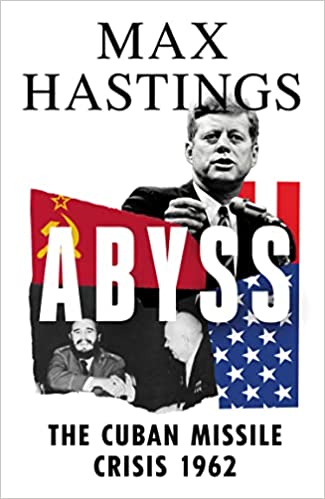
Those of us of a certain seniority will remember thirteen days in October 1962 when the world was on a collision course to the Third (and no doubt Final) World War. This was the height (or depth) of the Cold War and Chairman Nikita Khrushchev of the Soviet Union had commenced a programme to position nuclear rockets on the island of Cuba only sixty miles from Florida and a direct threat to the American mainland. He had stationed several thousand Russian troops there, incongruously dressed in civilian clothes to avert suspicion. The presence of these weapons was confirmed by unmistakable photographic evidence taken by a high-altitude U 2 spy plane. President John F. Kennedy was faced with the enormous problem of what to do. Nothing, or risk nuclear war by taking retaliatory action? His advisers, particularly the Military, were all for war. His political advisers were not so sure and surprisingly in the light of the later Vietnam War which tarnished his reputation, it was Robert McNamara his Secretary of Defense, and former head of the Ford Motor Company, who advised a naval blockade to stop further Soviet ships on their way to Cuba carrying more missiles and supplies. But an invasion of Cuba? No. The revolutionary leader of Cuba was the bearded and combat-uniformed Fidel Castro, who together with his Lieutenant Ernesto ‘Che’ Guevara were the fashionable icons of the 1960s. Castro had just cause to have taken power: the former Batista regime was deeply corrupt, and the Central Intelligence Agency (CIA) had its finger in the pie as well as the Mafia who ran the highly profitable casinos. But Castro was a dangerous megalomaniac who courted fame and war was no hindrance to that aspiration. Max Hastings is a journalist by trade, a distinguished war correspondent, who writes military history in a compelling and readable fashion. The Cuban Missile Crisis saw the world staring at the Abyss. The story is one of suspense and horror even though we now know the ending. The end was that the Soviet ships turned back, the missile sites dismantled, Khrushchev a boorish bully who liked to act the clown, which he assuredly was not, backed down. Kennedy for all his faults was magnificently brave and wise, unafraid to accept the responsibility that ‘the buck stopped here’ at the President’s desk. His assassination assured him of his place in history as one who said ‘The worst thing is to do nothing.’
The book does not end in 1962 but 2022 when Hastings draws a parallel with what is going on with President Putin, and his nuclear threats in the Ukraine. Who knows at this point in time what the outcome will be?
Reviewed by a library member.
[We have a copy of Abyss in the library, kindly donated by the reviewer]


